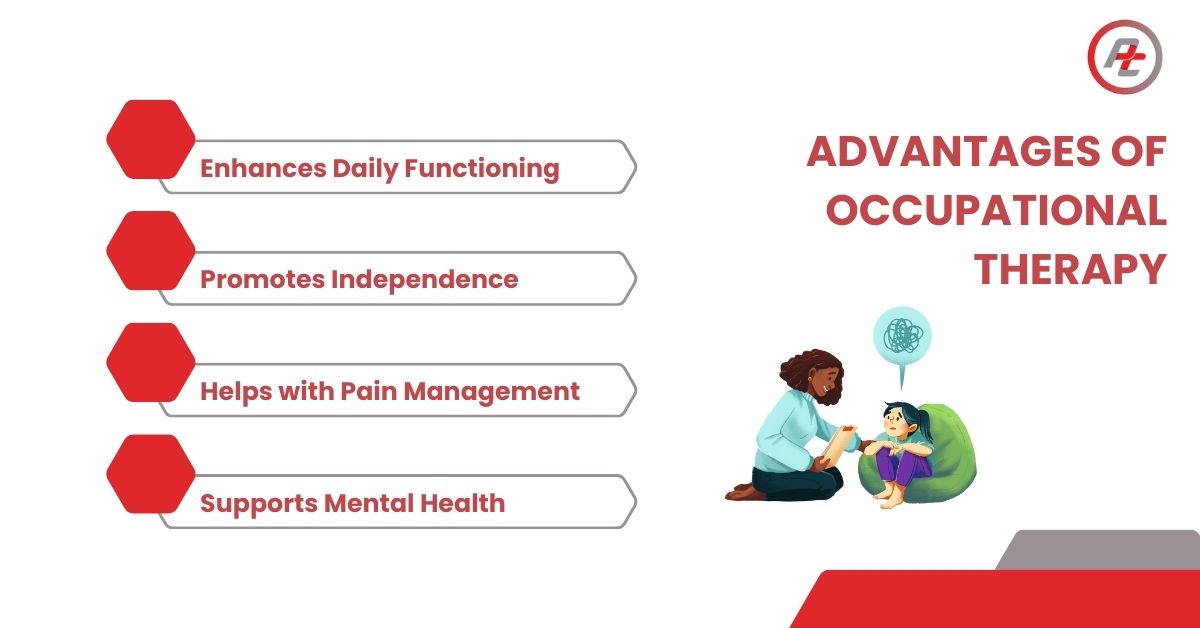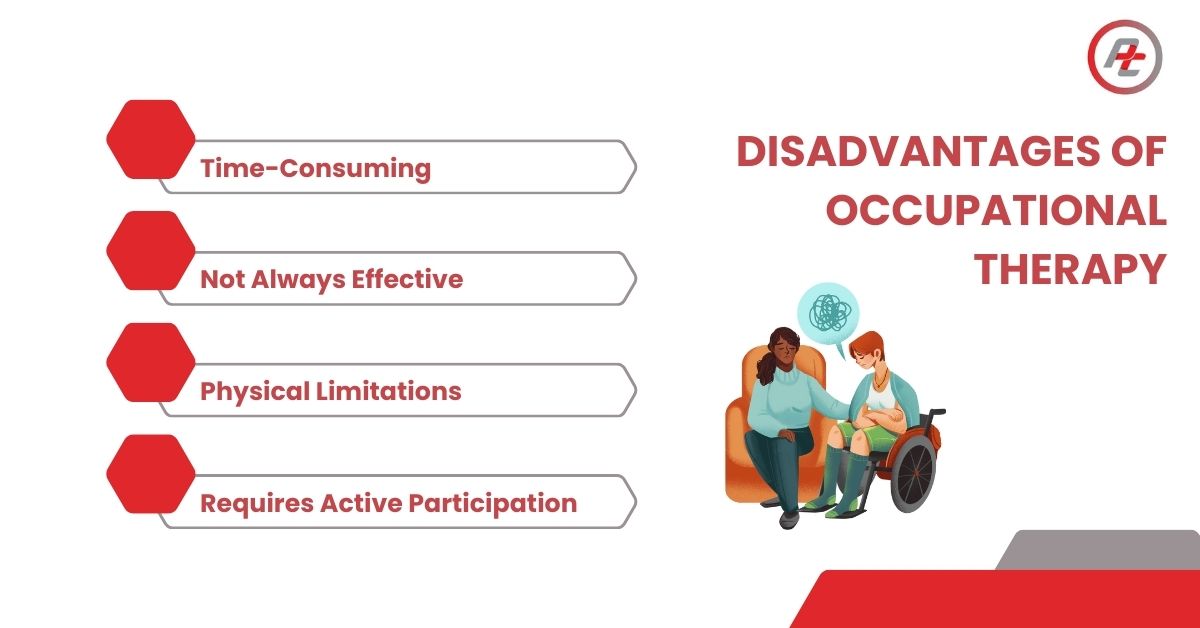Occupational therapy (OT) is a healthcare profession that helps individuals of all ages overcome challenges that hinder their ability to perform everyday tasks. It focuses on improving functional independence and enhancing quality of life. Whether it’s due to injury, illness, developmental disorders, or aging, OT empowers people to live fuller, more active lives. This post will explore the advantages and disadvantages of occupational therapy to help you make informed decisions about whether it’s the right fit for you or your loved ones.
What is Occupational Therapy?
Before diving into the advantages and disadvantages, it’s important to understand what an occupational therapy session involves. Occupational therapy is centered around activities that are meaningful and important to an individual. A typical occupational therapy session might include exercises, training in adaptive techniques, and the use of assistive devices to aid with daily tasks. Therapists work on improving skills that help a person engage in their job, schoolwork, hobbies, or self-care routines.
Advantages of Occupational Therapy

- Enhances Daily Functioning: Occupational therapy helps individuals regain the ability to perform essential tasks like dressing, cooking, and bathing after injury, stroke, or surgery. Customized therapy plans promote independence and improve overall well-being.
- Promotes Independence: OT fosters independence in individuals with disabilities or age-related challenges by teaching adaptive techniques and offering tools for efficient task performance, including time management and organizational skills.
- Helps with Pain Management: OT assists in managing chronic pain conditions like arthritis and back pain through ergonomic modifications, stretching exercises, and adaptive techniques, improving movement and comfort during daily activities.
- Supports Mental Health: OT benefits mental health by helping individuals with anxiety, depression, or PTSD regain a sense of accomplishment and build routines, coping mechanisms, and strategies for emotional well-being.
- Improves Quality of Life: The goal of OT is to enhance quality of life, enabling individuals to engage in meaningful activities, boost self-esteem, and experience a renewed sense of purpose.
Disadvantages of Occupational Therapy

- Time-Consuming: Occupational therapy requires ongoing visits, which can be inconvenient for those with busy schedules. Long-term therapy may also lead to frustration or burnout.
- Cost: The cost of occupational therapy can be a barrier, as some insurance plans don’t cover the full treatment. Long-term therapy may result in rising out-of-pocket expenses.
- Not Always Effective: Therapy techniques may not work for everyone, and some individuals might not see significant improvements, leading to frustration and the need for alternative treatments.
- Physical Limitations: Some patients may face physical limitations that prevent full recovery, leading to slower progress and potential feelings of defeat.
- Requires Active Participation: Success depends on the patient’s commitment to engage in therapy and apply the strategies outside of sessions. A lack of motivation can hinder progress.
Common questions People also search for
What are the advantages of occupational therapy?
It helps improve daily living skills, enhances independence, and supports physical and mental well-being.
Are there any disadvantages to occupational therapy?
It can be time-consuming, and costly, and may require a long-term commitment for noticeable results.
Who benefits the most from occupational therapy?
People with disabilities, injuries, or developmental delays benefit by gaining better mobility and life skills.
Conclusion
Occupational therapy offers many benefits, from improving daily function to managing pain and supporting mental health. However, it’s important to recognize the challenges that come with it, such as the time commitment and potential cost. Whether or not occupational therapy sessions are right for you or a loved one depends on personal circumstances, the nature of the condition, and your ability to fully engage in the therapy process.
If you’re considering occupational therapy, it’s a good idea to discuss your specific needs and goals with a licensed therapist. At Perris Clinic, our experienced occupational therapists are ready to assist you with personalized treatment plans that will help you live your best life. Don’t hesitate to schedule a consultation and take the first step toward greater independence and improved well-being.


Trackbacks/Pingbacks